About the Infectious Diseases Fellowship Program
Welcome to VCU Infectious Diseases Fellowship Training Program website! We are incredibly proud of our fellows, program, institution and community. VCU boasts an excellent clinical training experience that prepares graduates for successful careers in clinical infectious diseases, academic medicine, public health, and industry. The fellowship in infectious diseases at VCU Medical Center is fully accredited by the Accreditation Council for Graduate Medical Education.
.png)
Infectious diseases fellows spend six to eight months of each year at VCU Medical Center and Richmond Veterans Affairs Medical Center rotating on consult services including general infectious diseases, orthopedic infectious diseases, and transplant infectious diseases. One additional month is spent in the Clinical Microbiology Laboratory. The remaining months may be used for dedicated research time or for inpatient or outpatient electives catering to each individual fellow’s interests.
Available electives include rotations in hospital epidemiology and infection control, antimicrobial stewardship, medical education, medical ethics, travel medicine and global health, hepatology, specialized ICU rotations, allergy and immunology, and cystic fibrosis clinics, among others. Fellows also see outpatients one half day per week in the HIV clinic at the VCU Medical Center or at the Richmond VA Hospital as part of their continuity clinic. During elective months, fellows also have an opportunity to see outpatients in the general infectious diseases clinics.
We also offer a combined four-year fellowship program in Med/Peds Infectious Diseases. This is an integrated four-year training program and we work closely with the Pediatric Infectious Diseases Program to maximize Med/Peds ID fellows’ experience. If you are interested in applying, please indicate this in your application and send a joint communication to Dr. Jillian Raybould and the Pediatric ID Fellowship Program Director, Dr. Suzanne Lavoie.
But beyond a stellar clinical experience, what makes the VCU ID fellowship experience so rich is the supportive, experienced faculty and collegial fellows. We invite you to explore our website and learn more about what VCU has to offer.
Welcome
Program Director: Jillian Raybould, MD, FIDSA
Learn
Program Curriculum & Conferences
Curriculum
Program Overview
Fellows' Perspectives on the Program
“VCU is a high acuity tertiary care center and the Richmond VA is also a regional transplant center. As a result, ID fellows get exposure to a wide range of pathology. We have a robust HIV continuity clinic experience and a number of electives to choose from with flexibility to pursue other educational opportunities. Our faculty take their role as mentors to heart. The entire department is truly invested in creating the best learning environment and experiences for the ID fellows.”
Taylor Kirton-Davis, MD
The Infectious Diseases fellowship is a 2-year training program designed to satisfy the ABIM requirements for the Infectious Diseases subspecialty board examination. The first year of fellowship is aimed at teaching fellows the basic aspects of infectious diseases and clinical microbiology. The second year of fellowship is aimed at refining and expanding the knowledge gained and honing critical thinking skills. There is also funding for a third research year in Hospital Epidemiology and Infection Control for one qualified fellow. Fellows accepted for the third year research program also obtain an MPH at VCU during their fellowship.
Fellowship begins with a 2 week period of orientation including an introduction to the clinical microbiology laboratory and an introduction to HIV care. Core clinical inpatient rotations include the inpatient general Infectious Diseases consultation services at both the VCUHS and the Richmond Veterans Affairs Medical Center, the Orthopedic Infectious Diseases service and the Transplant Infectious Diseases services at VCUHS. In addition, fellows spend one month during their fellowship in the Clinical Microbiology laboratory and an additional month working with the Hospital Epidemiology and Infection Control service and Antimicrobial Stewardship Team. Fellows have an additional 3-6 months of elective or research time during each year of fellowship which are structured to support the development of each fellow’s career interests. Elective and research time is used to gain more clinical experience outside the typical infectious diseases consult setting, to hone research skills, and to pursue other scholarly projects.
Fellows also participate in one half-day per week continuity HIV clinic throughout fellowship, as well as one half-day general infectious diseases outpatient clinic during their elective time. Examples of clinical electives include Global Health, Travel Medicine, HIV ambulatory experience, Allergy and Immunology, Critical Care ID, Pediatric Infectious Diseases, HCV Intensive, Wound Care and a rotation at Richmond City Health Department, among others.
Program Goals & Objectives
This is a two-year infectious diseases fellowship designed to prepare the fellow for a career in Infectious Diseases by providing extensive clinical training, basic or clinical research experience, and teaching responsibilities. These skills will be developed in an environment that fosters scholarship and inquiry. This advanced education will ensure that the graduating fellow will possess the knowledge and skills necessary for independent practice in the field of Infectious Diseases. This will be accomplished with an emphasis on the following objectives:
- Formal instruction and clinical experience in the evaluation and management of a variety of infectious diseases including bacterial, fungal, viral, parasitic infections in the inpatient hospital setting and ambulatory settings.
- Clinical experience in the evaluation and management of infections in immunocompromised hosts including patients who have undergone prior transplantation, on chemotherapy or other immune-modulating medications, patients with primary immune disorders and HIV/AIDS.
- Formal instruction and clinical experience in the evaluation and management of musculoskeletal infections.
- Formal instruction and practical experience in hospital epidemiology and infection control.
- Formal instruction and practical experience in clinical microbiology.
- Instruction and clinical experience in antimicrobial stewardship.
- Clinical experience in the evaluation and long term management of HIV infected patients in both inpatient and outpatient settings including continuity of care on an outpatient basis.
- Formal instruction and mentorship in scholarly activity including clinical research and quality improvement to prepare fellows for careers in clinical care, research, public health, or leadership positions in healthcare settings (eg Hospital Epidemiologist, Director Antimicrobial Stewardship)
- Formal instruction and mentorship on population health including health care inequities and healthcare costs
- Promotion of lifelong learning in the context of a rapidly changing healthcare environment.
- To create a collegial, inclusive, and supportive setting for intellectual growth.
Typical Rotation Schedules
| Typical 1st Year Rotation Schedule | Location | Length |
| General Infectious Diseases Consults | VCUHS/VA | 6 Months |
| Transplant Infectious Diseases | VCUHS | 1 Month |
| Orthopedic Infectious Diseases | VCUHS | 2-4 Weeks |
| Elective/Research | VCUHS/VA | 3-4 Months |
| HEIC (1st or 2nd year) | VCUHS | 2 Weeks |
| Clinical Microbiology | VCUHS | 2 Weeks |
| Typical 2nd Year Rotation Schedule | Location | Length |
| General Infectious Diseases Consults | VCUHS/VA | 6 Months |
| Transplant Infectious Diseases | VCUHS | 1 Month |
| Orthopedic Infectious Diseases | VCUHS | 2-4 Weeks |
| Elective/Research | VCUHS/VA | 4-5 Months |
| HEIC (1st or 2nd year) | VCUHS | 1 Month |
| Clinical Microbiology | VCUHS | 2 Weeks |
| Antimicrobial Stewardship | VCUHS/VA | 2 Weeks |
*Annual vacation time is allocated during electives/research rotations.
Rotation Descriptions
General Infectious Diseases Consults (VCUHS and VAMC)
The consult service consists of an ID faculty member and fellows as well as IM interns, residents, M4 students and ID pharmacist. They are responsible for all inpatient consults outside of Transplant and Orthopedic ID. The patients present with a broad range of acute and chronic infections, ranging from bread-and-butter infectious diseases to the more complex, unusual cases typical of a major academic center.
Transplant Infectious Diseases (VCUHS)
The ID fellows rotate on the Transplant ID consult service with Dr. Megan Morales, Director of Transplant Infectious Diseases, and Drs. Nicole Vissichelli, Lora Thomas, & Nate Warner. The Transplant ID team sees a wide spectrum of patients including solid organ transplant recipients (heart, kidney, liver) as well as patients on the Heme/Onc and Bone Marrow Transplant units. Fellows become experienced in diagnosing and treating a wide spectrum of infectious complications associated with these uniquely immunocompromised patient populations.
Orthopedic Infectious Diseases (VCUHS)
ID fellows rotate on the Orthopedic ID consult service with Dr. Julie Reznicek, an expert in the management of orthopedic infections. The Orthopedic ID team works closely with the Orthopedic Surgery, Vascular Surgery, and Neurosurgical services in diagnosing and managing a wide variety of both common and complex musculoskeletal infections.
Clinical Microbiology (VCUHS)
ID fellows rotate for one month in the VCU Microbiology lab during their fellowship. In addition, fellows attend weekly Microbiology didactic sessions held by Drs. Bryson and Doern as well as weekly plate rounds at both VCUHS and the VA.
Hospital Epidemiology and Infection Control (VCUHS)
Each of our fellows spend one month during fellowship (additional time is available on elective/research) working in HEIC with Dr. Michelle Doll, Dr. Barry Rittman, and Dr. Patrick Ching and the infection control team. During this rotation, fellows attend HEIC meetings and gain practical first-hand experience in HEIC. Fellows not only gain knowledge of healthcare epidemiology and the functions of an infection control program, including surveillance for and prevention of healthcare-acquired infections. This rotation also provides fellows with marketable expertise before entering the workforce following graduation.
Antimicrobial Stewardship (VCUHS and VAMC)
Each of our fellows spend two weeks during fellowship (additional time is available on elective/research) working with the antimicrobial stewardship teams at both VCUHS and the VAMC. ID fellows complete the Core IDSA antimicrobial stewardship curriculum during this rotation and interested fellows can complete the Advanced AS Curriculum on an additional ASP rotation. Fellows gain knowledge of antimicrobial stewardship, the function of an ASP program, and gain insight on how to lead an ASP program.
Ambulatory Experience (VCUHS and VAMC)
HIV Continuity Clinic (VCUHS and VAMC)
ID fellows spend ½ day per week throughout their fellowship in HIV continuity clinic. Fellows spend 12 months at VCUHS and 12 months at Richmond VA Medical Center. Med-Peds fellows rotate in the HIV Family Clinic during their fellowship. Referrals come throughout the region; each clinic is fully supervised by ID Faculty. Clinics are also staffed by a true multidisciplinary team, including physicians (ID, Psychiatry, Nutrition), ID pharmacist, nurses, adherence specialist, case managers and support staff.
General Infectious Diseases Clinic (VCUHS)
½ day per month (only when on elective/research rotations) at VCUHS, ½ day per week when rotating at the Richmond Veterna Affairs Medical Center (3 months per year). Referrals come from throughout the region. Each clinic is fully supervised by ID faculty and includes experience in travel medicine.
- Allergy and Immunology
- Critical Care ID
- Cystic Fibrosis (adult & pediatrics)
- Global Health
- HCV Management Intensive
- HIV Ambulatory experience
- Medical Education
- Medical Ethics
- Research - The are a variety of basic and clinical research opportunities available to our fellows. For more information, please refer to "Research and Scholarship Expectations."
- Richmond City Health Department
- Travel Medicine
- Wound Care
Tracks
Fellows' Perspectives on the Program
“Becoming an Infectious Diseases fellow at VCU has been a gift that keeps giving! Everyone in the program has welcomed me like family and has been very supportive, both professionally and personally. The population we treat is very diverse, with a wide range of backgrounds and medical conditions. Besides the general ID service, the MSK and TID services are important parts of our training. Richmond is a great city to live in, too! The food is amazing, living here is quite affordable, there is no traffic, the weather is amazing, there are lots of places to hang around, and everyone is really nice!”
Aldo Barajas Ochoa, MD
Individualization
Aside from the core requirements, the elective/research time allotted during fellowship training allows for educational individualization based on the interests and needs of the fellow. In consultation with the program director, interested fellows have an opportunity to develop additional expertise in Hospital Epidemiology and Infection Control, Transplant ID, or Orthopedic ID, through focused study and expanded clinical experiences in these areas under the mentorship of dedicated faculty.
- Hospital Epidemiology and Infection Control - Faculty mentors Gonzalo Bearman MD, MPH, Richard P. Wenzel, MD, MPH, and Michelle Doll MD, MPH, Dr. Barry Rittman MD, MPH, and Dr. Patrick Ching MD, MPH. Funding exists for a 3rd research year of fellowship training for one fellow per year. Fellows accepted into this track also obtain an MPH at VCU during the 3rd year
- Med/Ped Infectious Disease- We offer a combined four-year fellowship in Med/Peds ID. Please contact Dr. Jillian Raybould and Pediatric ID Fellowship Program Director, Dr. Suzanne Lavoie if interested in applying.
- Orthopedic Infectious Diseases
- Transplant Infectious Diseases
Conferences
| Conference | Day/Time | Frequency |
| CORE FELLOWSHIP CONFERENCES (click for description below) | ||
| Infectious Diseases Grand Rounds | Mondays, 12:00-1:00 pm | Weekly |
| Core Curriculum | Wednesdays, 8:00 – 9:00 am | Weekly |
| HIV Journal Club | Third Friday of the month 12:00-1:00 | Monthly |
| Journal Club |
First Wednesday of month, |
Monthly |
| Clinical Microbiology Didactics | Wednesdays, 1:15-2:00 pm | Weekly |
| Clinical Microbiology Plate Rounds | Thursday (VCUHS) and Friday (VAMC) 1:15-2:00 | Weekly |
| INSTITUTION-SPONSORED CONFERENCES (click for description below) | ||
| Internal Medicine Grand Rounds | Thursdays, 12:00-1:00 pm | Weekly |
| CORE LECTURE SERIES (click for description below) | ||
| Graduate Medical Education (GME) Research Series (optional) |
10-Week Series from July to September | Annually |
| Internal Medicine Fellowship Lecture Series | Quarterly | |
Core Conferences
Infectious Diseases Grand Rounds
All ID faculty and fellows attend this weekly conference. The format for this conference varies from week to week. The majority of IDGR include interesting case-based presentations by faculty and fellows, alternating with research presentations and occasional updates from national and international conferences. The program director typically coordinates the topics and speakers.
Core Curriculum
A weekly, one-hour didactic format covering clinical topics in Infectious Diseases. Topics are covered on a rotating basis over the two-year fellowship. Lecturers include ID faculty as well as faculty from outside the division where beneficial by topic (i.e. Allergy/Immunology, GI, Pharmacy, Pediatric ID, OB/Gyn, etc.) The program director typically coordinates the topics and speakers.
HIV Journal Club
HIV Journal Club is a once monthly interactive conference reviewing up to date management of patients living with HIV. Participants include fellows, faculty, other clinical providers and is led by Dr. Fulco, our HIV pharmacist. .
Journal Club
This conference is held on a monthly basis and is run by a fellow and one of the ID faculty. Fellows rotate in leading this conference, selecting a journal of interest then presenting the article in a “traditional” journal club style presentation in which the fellow critically reviews the article(s) and leads a discussion with the faculty and other fellows. During these discussions, attention is paid not only to the outcome, but also the process and potential bias and errors.
Clinical Microbiology Didactics
This conference is held weekly by Drs. Doern and Bryson from Clinical Microbiology and consists of a series of lectures covering basic clinical microbiology. Topics are covered on a rotating basis over the two-year fellowship.
Clinical Microbiology Plate Rounds
These are highly educational, hands-on rounds held weekly in the clinical microbiology laboratory at both the VCU Medical Center and at the Richmond Veterans Affairs Medical Center. Current interesting cases are selected by the ID consult team, or by laboratory staff, for discussion and review of the microbiologic workup. Rounds are led by Dr. Bryson, Dr. Doern, or Dr. Hill.
Institution-Sponsored Conferences
Institution Sponsored Conferences include:
- Internal Medicine Grand Rounds and CPC (both MCVH/VCUHS and McGuire VAMC)
- Departmental Morbidity and Mortality
- Department of Internal Medicine - Emergency Medicine Conference
- Internal Medicine Fellowship Lecture Series
Core Lecture Series
- GME Research Series
- GME Lecture Series: This conference is held throughout the year at VCUHS. Topics include quality improvement, professionalism, risk management, health care organization, world health issues, medical delivery systems, health care disparities, and cultural awareness, etc. In addition, the GME office sponsors the institutional orientation that all incoming interns, residents and fellows must attend (topics include teamwork, patient safety, effective communication, handoffs, consultation, supervision, etc.)
Scholarship
Our recent publications, presentations and abstracts
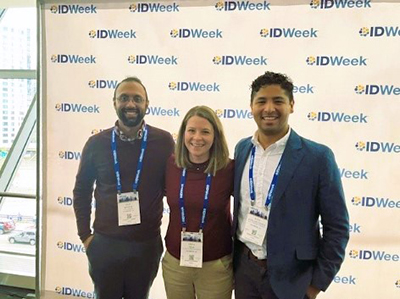 All fellows are expected to actively engage in scholarly activities. These activities can be in basic research, translational research, clinical research, health outcomes research, and/or educational research. Essential to success is providing the tools necessary to foster the fellows’ intellectual development as investigators. These tools are provided through participation in VCUHS Graduate Medical Education Research for Residents and Fellows. In addition, the third year research fellowship affords one fellow the opportunity to hone their skills as a hospital epidemiologist while obtaining an Masters of Public Health or a Master of Science in Clinical Research and Biostatistics.
All fellows are expected to actively engage in scholarly activities. These activities can be in basic research, translational research, clinical research, health outcomes research, and/or educational research. Essential to success is providing the tools necessary to foster the fellows’ intellectual development as investigators. These tools are provided through participation in VCUHS Graduate Medical Education Research for Residents and Fellows. In addition, the third year research fellowship affords one fellow the opportunity to hone their skills as a hospital epidemiologist while obtaining an Masters of Public Health or a Master of Science in Clinical Research and Biostatistics.
As a sign of our commitment to the scholarly efforts of the fellows, both GME and the Department of Internal Medicine has designated funding which is set aside specifically to offset the travel cost for fellows who are presenting their work at regional, national, and international scientific and academic meetings. The division is similarly committed to assisting with costs associated with presenting and publishing scholarly efforts. At VCU, we honor your education and professional growth as our greatest achievement and are proud to send our residents and fellows as our ambassadors.
Aldo Barajas-Ochoa, MD
- Stamos D, Barajas-Ochoa A, Raybould J. Nocardia pseudobrasiliensis coinfection in a patient with SARS-CoV-2: Case Report and Review of Literature. Emerging Infectious Diseases. 2023;29(4):696-700. DOI: https://doi.org/10.3201/eid2904.221
- Hossain S, Hossain A, Barajas-Ochoa A, Jaker M. Brevibacterium Bacteremia in the Setting of Pyogenic Liver Abscess: A Case Report with Accompanying Literature Review. Case Reports in Infectious Diseases. 2021:8034874. DOI: 10.1155/2021/8034874.
POSTERS
- Barajas-Ochoa A, Ramirez-Trejo M, Dash A, Raybould J, Bearman G (2023). Gender Representation of Editors, Editorial Boards, and Authors of Infectious Diseases and Healthcare Epidemiology Journals. Poster presented at: The Annual Society for Healthcare and Epidemiology of America Spring Conference: Seattle, USA.
- Ng N, Barajas-Ochoa A, Friedel D. Purpura fulminans secondary to Klebsiella pneumoniae bacteremia in an immunocompromised patient. Poster presented at: American College of Physicians 2023 Medical Student Competition. April 29, 2023.
Aditee Dash, MD
- Ashley H. Barnes, Christopher Smith, Aditee Dash, Akira A. Shishido. Mpox: Special Considerations in the Immunocompromised Host. Current Treatment Options in Infectious Diseases. January 2023
POSTER PRESENTATIONS
- Aditee Dash; Kaila Cooper; Barry Rittmann; Michael Stevens; Gonzalo Bearman; L. Silvia Munoz-Price; Michelle Elizabeth Doll. Increasing Rates of Ventilator-Associated Events; Blame it on COVID-19? Presenting in : Society for Healthcare Epidemiology of America, 2023.
- Aldo Barajas-Ochoa; Aditee Dash; Jillian Raybould; Gonzalo Bearman. Gender Representation of Editors, Editorial Boards, and Authors of Infectious Diseases and Healthcare Epidemiology Journals. Presented in : Society for Healthcare Epidemiology of America, 2023.
Dilip Mahale, MD
- Mahale, DN. Case Study: A Nodule from the West [Video]. American Society for Clinical Microbiology. February 26th, 2024.
Erica Peak, MD
- Peak, E., MD, Thomas, L. Influenza Vaccination in Solid Organ Transplant Recipients: Methods to Improve Immunogenicity and Future Directions. Current Treatment Options in Infectious Diseases (2024).
Laura Pedersen, MD
- Pedersen L, Elgin K, Peace B, Masroor N, Doll M, Sanogo K, Zuelzer W, Peterson G, Stevens MP, Bearman G. Barriers, perceptions, and adherence: Hand hygiene in the operating room and endoscopy suite. American journal of infection control. 2017 Jun 1;45(6):695-7.
- Pedersen L, Masroor N, Cooper K, Patrick A, Razjouyan F, Doll M, Stevens MP, Bearman G. Barriers and perceptions of environmental cleaning: An environmental services perspective. American Journal of Infection Control. 2018 Dec 1;46(12):1406-7.
- Pedersen L, Hess K, Sastry S, Bearman G. Bacterial Pyomyositis Associated with Human Immunodeficiency Virus: Diagnosis, Management, and Review of the Recent Literature. Current Treatment Options in Infectious Diseases. 2019 Sep;11(3):243-51.
- Pedersen, L., Bearman, G., Kiernan, M., & Rupp, M. E. (2022). Influential Papers that Shaped Paradigms and Changed Practice in Infection Prevention in the Last 60 Years: Then, Now, and Future Directions. Current Infectious Disease Reports, 1-9
POSTER PRESENTATIONS
- Pedersen L, Elgin K, Peace B, Masroor N, Doll M, Sanogo K, Zuelzer W, Peterson G, Stevens MP, Bearman G. (2016). Barriers, perceptions, and adherence: Hand hygiene in the operating room and endoscopy suite. Poster presented at: The Annual Society for Healthcare and Epidemiology of America Spring Conference: Atlanta, GA.
- Pedersen L, Masroor N, Cooper K, Patrick A, Razjouyan F, Doll M, Stevens MP, Bearman G. (2018). Barriers and perceptions of environmental cleaning: An environmental services perspective. Poster presented at: The Annual Society for Healthcare and Epidemiology of America Spring Conference: Portland, OR.
2022-2023
Taylor Kirton-Davis, MD
- Kirton-Davis, T, Markley D, Hitchcock M, Hill E. Using Karius to diagnose disseminated Mycobacterium Mucogenicum infection. submitted to ID week.
- Kirton-Davis, T, Nasir M, Reznicek J. A case report of staphylococcus delphini bacteremia complicated by staphylococcus associated glomerulonephritis. Submitted to ID week.
- Kirton-Davis, T, Nasir, M. Monoarticular Histoplasmosis. Submitted to ID week.
2021-2022
Julie Boatman, DO
- Boatman JD, Stevens MP, Markley JD. Infection Control in Outpatient Setting, Infection Prevention: New Perspectives and Controversies, Edition 2, Springers International Publishing, New York City, NY, 2021.
Jacob Pierce, MD
PUBLICATIONS
- Joly-Amado A, Brownlow M, Pierce J, Ravipati A, Showalter E, Li Q, Gordon MN, Morgan. Intraventricular human immunoglobulin distributes extensively but fails to modify amyloid in a mouse model of amyloid deposition. Current Alzheimer Research. 2014;11(7):664-71. Cited in Pubmed; PMID: 25115543
- Pierce JW, Rittman B, Raybould JE. Case Report: Paederus Dermatitis in the Returning Traveler. Am J Trop Med Hyg. 2018;98(5):1523-1525. doi:10.4269/ajtmh.17-0976
- Kirk A, Pierce J, Doll M, et al. The effectiveness of formulary restriction and preauthorization at an academic medical center. Am J Infect Control. 2019;000:2018-2020. doi:10.1016/j.ajic.2018.12.026.
- Pierce, J., Lee, K., Markley, J., Pakyz, A., Doll, M., Kirk, A., Bearman, G., De la Cruz, O., Stevens, M. Relative use of carbapenems in immunocompromised patients. Open Forum Infect Dis 2018;5(suppl1): https://doi.org/10.1093/ofid/ofy210.263
- Kirk A, Pierce J, Doll M, et al. Effect of carbapenem restriction on prescribing trends for immunocompromised wards at an academic medical center. Am J Infect Control. 2019;47(8):1035-1037. doi:10.1016/j.ajic.2018.12.027
- Pierce, J, MD; Kirk, A, BS; Lee, K, PharmD; Markley, J, DO, MPH; Pakyz, A PharmD, PhD; Bearman, G, MD, MPH; Doll, M, MD, MPH; and Stevens, M, MD, MPH The Impact of Formulary Restriction on the Relative Consumption of Carbapenems in ICUs at an Academic Medical Center. Infection Control and Hospital Epidemiology 2019 Sep;40(9):1056-1058. doi: 10.1017/ice.2019.170
- Pierce J, Apisarnthanarak A, Schellack N, et al. Global Antimicrobial Stewardship with a Focus on Low- and Middle-Income Countries. Int J Infect Dis. 2020;96:621-629. doi:10.1016/j.ijid.2020.05.126
- Pierce J, Dalton, J. MD, Stevens, M, MD, MPH, Godwin, M., Hill, A., Doern, C., PhD, Alexandra L. Bryson, 28-year-old man with an organism extracted from the eye. Clinical Infectious Diseases doi: 10.1093/cid/ciaa1841. 2021;72(11):2049-2051.
- Pierce J, Stevens, M. COVID-19 and Antimicrobial Stewardship: Lessons Learned, Best Practices and Future Implications. Int J Infect Dis. https://doi.org/10.1016/j.ijid.2021.10.001
- Pierce J, Kimberly J, Deja EN, et al. Electronic distribution of coronavirus disease 2019 (COVID-19) guidelines: A potential tool for antimicrobial stewardship programs. Infection Control & Hospital Epidemiology. 2021:1-2. doi:10.1017/ice.2021.419
- Stevens, M. P., Pierce, J., Pryor, R., Doll, M. E., & Bearman, G. M. (2021). The coronavirus disease 2019 (COVID-19) delta wave: Refocusing effort and remaining resilient in the face of evolving infection prevention and antimicrobial stewardship challenges. Antimicrobial Stewardship & Healthcare Epidemiology, 1(1), 1–3. https://doi.org/10.1017/ash.2021.211
- Pierce, J., & Stevens, M. P. (2021). The Emerging Role of Telehealth in Antimicrobial Stewardship: A Systematic Review and Perspective. Current Treatment Options in Infectious Diseases, 13(4), 175–191. https://doi.org/10.1007/s40506-021-00256-7
BOOK CHAPTERS
- Pierce J, Edmond MB, Stevens MP, Enterococcal species. In: Bearman G, Stevens M, Doll M & Mehtar S, eds. A guide to Infection Control in the Hospital. 6th edition. USA: International Society for Infectious Diseases, 2018.
- Pierce J, Edmond, MB, Stevens MP, Staphylococcus aureus. In: Bearman G, Stevens M, Doll M & Mehtar S, eds. A guide to Infection Control in the Hospital. 6th edition. USA: International Society for Infectious Diseases, 2018.
- Pierce, J, Markley, D, Schellack, N, Stevens MP, Antimicrobial Stewardship in the Hospital Setting. In: A guide to Infection Control in the Hospital. 6th edition. USA: International Society for Infectious Diseases, 2020.
POSTER PRESENTATIONS
- Jacob Pierce, MD, Kimberly Lee, PharmD, Erin Deja PharmD, Jihye Kim PharmD, Michelle Doll, MD Michael Stevens, MPH, MD, “Antimicrobial Use Patterns During the COVID-19 pandemic at an Academic Medical Center”. Accepted to SHEA Spring Conference 2022, Colorado Springs, CO.
- Jacob Pierce, MD; Andrew Kirk; Emily Godbout, DO, MPH; John D. Markley, DO, MPH; Amy Pakyz PharmD, PhD; Kimberly Lee, PharmD; Andrew Noda PharmD; Michelle Doll, MD, MPH; Gonzalo Bearman, MD, MPH; and Michael P. Stevens, MD, MPH “Relative Carbapenem Use for a Burn ICU at an Academic Medical Center”. SHEA Spring Conference 2019 Boston, MA.
- Jacob Pierce, MD, Andrew Kirk, Kimberly Lee, PharmD, Daniel Markley, DO, MPH, Amy Pakyz, PharmD, Gonzalo Bearman, MD, MPH, Michelle Doll, MD, MPH, Oveimar De la Cruz, MD, and Michael P. Stevens, MD, MPH “Proportion of Carbapenem Consumption for in Immunocompromised Patients at an Academic Medical Center”. ID Week 2018.
- Elizabeth Varnell, MD, Samuel Powell, MD, Jacob Pierce, MD, Irene Gaines, MD, Faten Ragaban, MD, Alexandra Lambert, MD, E. Taylor Kirton-Davis MD. “Don't Bleed VAMC: A Resident-Driven Initiative to Reduce Unnecessary Phlebotomy on Inpatient Internal Medicine Wards”. VCU Health Resident/Fellow Research Day June 2018.
- Jacob Pierce, MD, Andrew Kirk, Kimberly Lee, PharmD, Daniel Markley, DO, MPH, Amy Pakyz, PharmD, Gonzalo Bearman, MD, MPH, Michelle Doll, MD, MPH, and Michael P. Stevens, MD, MPH. “Relative Consumption of Carbapenems in ICUs at an Academic Medical Center”. SHEA Spring Conference April 2018.
- Kirk, A., Pierce, J., Lee, K., Markley, D., Pakyz, A., Bearman, G., Doll, M., Stevens, M. “Impact of Prospective Audit with Intervention and Feedback on Meropenem use in a Medical Intensive Care Unit”. Society for Healthcare Epidemiology of America Spring Meeting. Portland, OR; April 18-20, 2018
- Jacob Pierce, Carolyn Hanna, Neal Rajyaguru, Frazier Stevenson MD. “Examination of the factors influencing collaboration and efficiency of academic research”. USF Health Research Day Feb. 2014.
2020-2021
Pamela Bailey, DO
- Ruslan R, Bailey P, Sastry S. Nocardia beijingensis lung mass in an immunocompetentadult. BMJ Case Reports. 2021;14(1):e237454.
- Bailey P, Edmond MB, Stevens MP. Chapter 47. Public Reporting of Healthcare-Associated Infection Rates. Jarvis Bennet & Brachman’s Hospital Infections, 7th edition.
- Hess OCR, Armstrong-Novak JE, Doll M, Cooper K, Bailey P, Godbout E, Stevens MP, Bearman G. The Impact of COVID-19 on Provider Usage of Electronic Hand Hygiene Monitoring Technology. Infection Control and Hospital Epidemiology. 2020; 1-3.Available online: 20 November 2020.
- Sastry S, Pryor R, Raybould JE, Reznicek J, Cooper K, Patrick A, Knowlson S, Bailey P,Godbout E, Doll M, Stevens MP, Bearman G. Universal Screening for the SARS-CoV-2virus on hospital admission in an area with low COVID-19 prevalence. Infection Controland Hospital Epidemiology. 2020; 41(10): 1231-1233.
- Doll M, Pryor R, Mackey D, Doern C, Bryson A, Bailey P, Cooper K, Godbout E, Stevens MP, Bearman G. Utility of Re-testing for Diagnosis of SARS-CoV-2/COVID-19 inHospitalized Patients: Impact of the Interval between Tests. Infection Control andHospital Epidemiology. 2020; 41(7):859-861. DOI: https://doi.org/10.1017/ice.2020.224
- Bailey, P., Armstrong, J., Hess, O., Pryor, R., Auricchio, J., Cooper, K., Godbout, E.,Stevens, M.P., Bearman, G., Doll, M. Buyer Beware: Hidden Costs in Deployment ofAutomated Hand Hygiene Technology. Int J Infect Dis 2020; 101 Suppl 1:207-208(published abstract).
- Doll, M., Bailey, P., Lesane, L., Cooper, K., Godbout, E., Stevens, M.P., Bearman, G. TheNeglected Wrists Under White Coats: An Achilles Heel for Hand Hygiene? Int J Infect Dis2020; 101 Suppl 1:301 (published abstract).
- Carlene Muto MD, MS, Pamela Bailey DO, Barry Rittmann MD, MPH, Amie Patrick RN,MSN, Olivia Hess, Kaila Cooper MSN, Rachel Pryor RN, MPH, Michael P. Stevens MD,MPH, Michelle Doll MD, MPH, Gonzalo Bearman MD, MPH. Accuracy of the NHSNCentral Line Associated Bloodstream Infection Defi nition: The Experience of TwoGeographically Proximal Academic Medical Centers. Infection Control & HospitalEpidemiology , Volume 41 , Issue S1: The Sixth Decennial International Conference onHealthcare-Associated Infections Abstracts, March 2020: Global Solutions to AntibioticResistance in Healthcare , October 2020 , pp. s457 - s458.
- Pamela Bailey DO, MPH, Jo Dee Armstrong-Novak, Kaila Cooper RN, MSN, Michael P.Stevens MD, MPH, Gonzalo Bearman MD, MPH, Michelle Doll, MD, MPH. ContactPrecautions as a Barrier to Hand Hygiene: PDSA to Improve Compliance with GlovedHand Hygiene. Open Forum Infectious Diseases. 2020; 7(1):s468.
- Pamela Bailey DO, MPH, Jo Dee Armstrong-Novak, Kaila Cooper RN, MSN, Michael P.Stevens MD, MPH, Gonzalo Bearman MD, MPH, Michelle Doll, MD, MPH. Inter-raterReliability of Hand Hygiene Observers with an Electronic Monitoring System. OpenForum Infectious Diseases. 2020; 7(1):s468-469.
Nicole Vissichelli, MD
- Vissichelli, NC, Orndahl CM, Cecil JA, Hill EM, Sabo RT, Stevens MP, Tassone D, VaughanLB, & Markley DJ. Impact of cascade reporting of antimicrobial susceptibility onfl uoroquinolone and meropenem consumption at a Veterans Affairs Medical Center .Infection Control and Hospital Epidemiology.
- Sann KZ, Vissichelli NC, Bryson A, Doern C, Mochel MC, Bearman G, & Sastry S. Diffuseskin nodules in an oyster farmer: Disseminated Mycobacterium marinum. AmericanJournal of Medicine. July 2020; 134(1): E57-E59. PMID 32710828.
- Vissichelli, NC, Orndahl CM, Cecil JA, Hill EM, Sabo RT, Stevens MP, Tassone D, VaughanLB, & Markley DJ. Impact of cascade reporting of antimicrobial susceptibility on theantimicrobial consumption at a Veterans Affairs Medical Center. Poster presentation atInfectious Diseases Week, Philadelphia, PA, October 2020.
- Vissichelli NC, Anderson L, Eckert A, Markley DJ, Cecil J, Vaughan LB, Hill E, & HitchcockMM. A Cluster of Disseminated Gonococcal Infections in a Non-ImmunocompromisedVeteran Population. Poster presentation at Infectious Diseases Week, Philadelphia, PA,October 2020.
Life During Fellowship
Infectious Diseases Fellowship Program
Fellows' Perspectives on the Program
“One of my favorite things about our program is how collegial and supportive the environment is. As fellows we are treated as colleagues and valued members of the team. Training definitely doesn’t happen in a vacuum and I love how our division supports each other in both personal and professional goals. Our department values work-life integration and allows us to develop these skills as fellows and young professionals.”
Laura Pedersen, MD
Vacation Time
Each fellow is allowed three weeks of vacation per year. The time is generally taken as either one of the following:
- Three 7-day vacations
- One 7-day vacation and one 14-day vacation.
Additionally, each fellow is given five days off during the December holiday period.
Night Coverage
Infectious Diseases fellows do not take any in-house call. While other healthcare providers provide in-house coverage at night, the Infectious Diseases fellows take night call from home when rotating on the inpatient consultation services. At night, the fellows provide the at-home call for urgent clinical care questions. On very rare occasions, fellows come in for emergent ID consults, staffed with the on-call attending physician. Additionally, the attending physician provides back-up, supervision, and escalation for the fellow on-call.
Weekend Coverage
Fellows are given one day off in seven during the 2-week block while on the inpatient general ID consultation services (6 months per year). All other clinical rotations are weekdays only.
When on call over a weekend, the fellows see all new consults at VCU and the VA hospitals during the day, which are staffed with the attending physician on service. Additionally, the weekend on-call fellows round with the attending physician on existing consults followed at VCU as determined by the consult team at the time of weekend check-out or as warranted by changes in a patient’s condition.
GME Resident & Fellow Well-Being
Graduate Medical Education training is not easy. With the GME Physician Well-being program, we first and foremost assert our commitment to your well-being, resilience and all aspects of a healthy lifestyle. VCU and VCUHealth are dedicated to ensuring that you have the tools you need to be your best. (Learn more)
All About VCU, VCUHealth, and RVA
We fondly refer to Richmond as RVA. People love this city because it’s awesome. And Virginia Commonwealth University is in the middle of it all. Learn more about VCU, VCUHealth, and RVA! Learn more about VCU, VCUHealth, and RVA!
Program Leadership
Infectious Diseases Fellowship Program
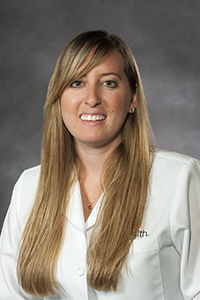
Jillian Raybould, MD
Program Director

Jillian Raybould, MD
Program Director
Internal Medicine
Division of Infectious Diseases
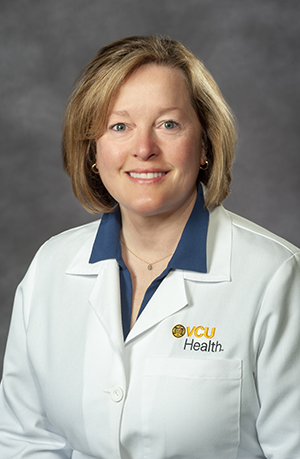
Jane A. Cecil, MD
Associate Program Director

Jane A. Cecil, MD
Associate Program Director
Internal Medicine
Division of Infectious Diseases
Email: jane.cecil@vcuhealth.org
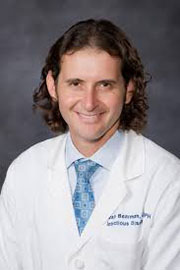
Gonzalo Bearman, MD, MPH, FACP
Division Chief

Gonzalo Bearman, MD, MPH, FACP
Division Chief
Internal Medicine
Division of Infectious Diseases
Faculty
Infectious Diseases Fellowship Program
VCU Faculty
- Gonzalo Bearman, MD, MPH - Division Chief
- Alexandra Bryson, PhD - Clinical Pathology
- Jane Cecil, MD - Fellowship Associate Program Director
- Patrick Ching, MD, MPH
- Christopher Doern, PhD (ABMM) - Clinical Pathology
- Michelle Doll, MD
- Michael S. Donnenberg, MD
- David Friedel, MD - Medicine-Pediatrics
- Patricia Fulco, PharmD
- Emily Hill, PhD - Pathology
- Suzanne Lavoie, MD - Medicine-Pediatrics
- Megan Morales, MD
- Dan Nixon, DO, PhD
- Laura Pedersen, MD, MPH
- Jillian Raybould, MD - Fellowship Program Director
- Julie Reznicek, DO
- Barry Rittman, MD, MPH
- Sangeeta Sastry, MD
- Dan Tassone, PharmD
- Lora Thomas, MD
- Nicole Vissichelli, MD
- Nathaniel Warner, MD
- Richard Wenzel, MD, MSc - Emeritus Faculty
VAMC Faculty
- Julie Boatman, DO
- Michael Climo, MD
- Matthew Hitchcock, MD
- John D. Markley, DO
Fellows
Infectious Diseases Fellowship Program
Class of 2027

Tristan Jones, MD - (combined Med/Peds ID)
Medical School: University of Chicago Division of Biological Sciences The Pritzker School of Medicine
Residency: Virginia Commonwealth University Health System
Class of 2026

Mandy Cho, DO
Medical School: Edward Via College of Osteopathic Medicine – Virginia
Residency: Summa Health System/NEOMED

Trevor Scheckelhoff, DO
Medical School: Edward Via College of Osteopathic Medicine - Virginia Campus
Residency: Lehigh Valley Health Network
Class of 2025

Medical School: University of South Carolina School of Medicine – Columbia
Residency: Thomas Hospital Internal Medicine

Medical School: Virginia Commonwealth University
Residency: Virginia Commonwealth University Health System (Pediatrics)

Medical School: Edward Via College of Osteopathic Medicine – Carolinas Campus
Residency: University of South Carolina/Prisma Midlands, Columbia SC
Class of 2024

Aditee Dash, MBBS
Medical School: Veer Surendra Sai Institute of Medical Sciences and Research
Residency: St. Joseph Mercy Hospital - Ann Harbor
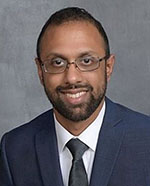
Dilip Mahale, MD (combined Adult/Peds ID)
Medical School: University of Oklahoma College of Medicine
Residency: University of Illinois College of Medicine - Peoria

Jorge Aldo Barajas Ochoa, MD
Medical School: Universidad de Guadalajara, Mexico
Residency: Rutgers New Jersey Medical School
Chief Residency: Rutgers New Jersey Medical School
Alumni
Class of 2024
Jorge Aldo Barajas Ochoa, MD
Medical School: Universidad de Guadalajara, Mexico
Residency: Rutgers New Jersey Medical School
Chief Residency: Rutgers New Jersey Medical School
Aditee Dash, MBBS
Medical School: Veer Surendra Sai Institute of Medical Sciences and Research
Residency: St. Joseph Mercy Hospital - Ann Harbor
Dilip Mahale, MD - (combined Med/Peds ID)
Medical School: University of Oklahoma College of Medicine
Residency: University of Illinois College of Medicine – Peoria
Class of 2023
Poonam Bai, MBBS
Medical School: Peoples University of Medical & Health Sciences for Women
Residency: Saint Joseph Mercy Oakland Hospital Pontiac, MI
Emily Taylor Kirton-Davis, MD
Medical School: University of South Carolina School of Medicine
Residency: Virginia Commonwealth University Health System
Laura Pedersen, MD - HEIC Research Fellow
Medical School: Virginia Commonwealth University
Residency: Virginia Commonwealth University Health System
Class of 2022
Julie Boatman, DO
Medical School: Ohio University Heritage College of Osteopathic Medicine
Residency: Mount Carmel Health System Program
Class of 2021
Jacob Pierce, MD - HEIC Research Fellow
Medical School: University of South Florida - Morsani College of Medicine
Residency: Internal Medicine at Virginia Commonwealth University
Class of 2020
Jennifer Emberger, MD, MPH
Medical School: University of Maryland School of Medicine
Residency: Internal Medicine & Pediatrics at Vidant Medical Center
Medical School: University of Vermont College of Medicine
Residency: Internal Medicine at Wake Forest University Baptist Medical Center
Nicole C. Vissichelli, MD
Medical School: Virginia Commonwealth University
Residency: Internal Medicine, Virginia Commonwealth University
Apply
Infectious Diseases Fellowship Program
Eligibilty Requirements
Regarding Visa Requirements, Virginia Commonwealth University Health Systems can only support J-1 visas.
How to Apply:
The Infectious Diseases fellowship training program at VCU is a participant in the NRMP match. All applications will be accepted through ERAS and follow ERAS deadlines.
If you are applying for the 4 year Med/Peds ID Fellowship Program, please email Dr. Jillian Raybould at jillian.raybould@vcuhealth.org and Dr. Suzanne Lavoie at suzanne.lavoie@vcuhealth.org indicating your interest in the combined program.
Required Documentation
- Application
- Curriculum Vitae
- USMLE score reports
- Medical School Transcripts
- MSPE
- A personal statement
- 3 letters of recommendation, including one from your program director
If applicable, please provide the following:
- ECFMG certificate
- Medical School Diploma (with translation if necessary)
Application Timeline:
We will review applications from July through October. Invitations to interview will likely be issued during this time frame.
Interviews:
Interviews are typically conducted on Mondays so that applicants can attend ID Grand Rounds. The interview day usually starts at 9:00 AM.
The interview day consists of the following:
- Introduction to the program and division by the Program Director
- Interviews with VCUHS and VA-based faculty
- Tour of the VCUHS facilities
- Lunch with current fellows
- Attendance at ID Grand Rounds
Interview days typically end between 2 and 3 pm. A sample itinerary is provided to give you a general sense of how we structure the day. See sample itinerary here.
Contacts
Infectious Diseases Fellowship Program
Program Director
Jillian E. Raybould, MD
Box 980049
Richmond, Virginia 23298-0049
Phone: (804) 828-9711
Email: jillian.raybould@vcuhealth.org
Associate Program Director
Jane Cecil, MD
Box 980049
Richmond, Virginia 23298-0049
Email: jane.cecil@vcuhealth.org
Fellowship Coordinator
Syad Hashami
VCU School of Medicine
Department of Internal Medicine
Box 980509
Richmond, Virginia 23298-0509
Phone: (804) 628-0978
Fax: (804) 828-4926
Email: imfellowships@vcuhealth.org
For training verification requests, please visit us at https://intmed.vcu.edu/education/verification/
